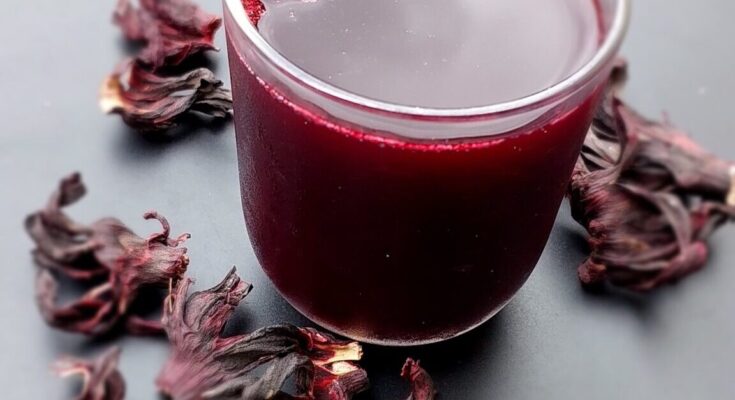Zobo drink, also known as hibiscus tea, is a popular beverage in many West African cultures. Made from the dried calyces of the hibiscus flower, it has a bright red color and tart, cranberry-like flavor.
While enjoying various health benefits, research indicates zobo may pose some potential risks for pregnant women. Let’s take a closer look at the evidence and what expectant mothers need to know.
Hormonal effects on pregnancy
Studies on rats have found that components in hibiscus sabdariffa, the main plant used to make zobo, can disrupt estrogen levels in the body. Estrogen is a key hormone involved in maintaining a healthy pregnancy. Too much or too little estrogen has been linked to an increased risk of miscarriage.
During pregnancy, estrogen levels rise steadily to support the growing fetus. Any substance that throws hormone production out of balance could threaten the pregnancy. Animal research shows zobo may inhibit estrogen production, though human studies are still needed.
To be safe, it’s advisable for pregnant women to avoid zobo during the first and third trimesters when hormone fluctuations can more easily impact the developing baby. The body needs stable hormone levels throughout gestation to properly nurture the fetus.
Potential uterine issues
The same rat studies also found zobo may cause early onset of menstruation and irregular periods. For pregnant rats, it was linked to preterm labor and excessive bleeding from the uterus.
In humans, these effects could translate to premature contractions and vaginal bleeding that threaten the viability of the pregnancy. The uterus must remain relaxed yet strong to carry a baby to full term. Anything causing contractions or bleeding before the baby is ready to be born increases risks.
Individual susceptibility
While some women report drinking zobo during pregnancy without complications, others firmly believe it contributed to their miscarriages. Every pregnancy is different, as is each woman’s individual biochemistry and susceptibility.
What’s safe for one woman may pose risks for another. Factors like a woman’s age, health issues, nutritional status, stress levels, and other environmental exposures all influence a pregnancy’s outcome as well. Introducing any potentially risky substance simply isn’t worth the gamble.
Playing it safe
With limited human research available but concerning animal data, medical experts advise pregnant women to avoid zobo drink as a precaution. While further studies are still needed, the developing fetus’s health and well-being should be the top priority during these critical 9 months.
For most expectant mothers, it’s just not worth taking any chances by consuming zobo on a regular basis. Small amounts may be fine, but it’s always best to check with your OB/GYN if you have any specific questions or concerns based on your individual medical history and pregnancy. Overall, when in doubt, it’s best to steer clear.
By making informed choices and exercising restraint with questionable substances, you can feel confident you’re doing your best to support a healthy pregnancy journey. Don’t hesitate to consult your healthcare provider for personalized guidance as well. Together, you can make decisions that optimize both your health and your baby’s health.








